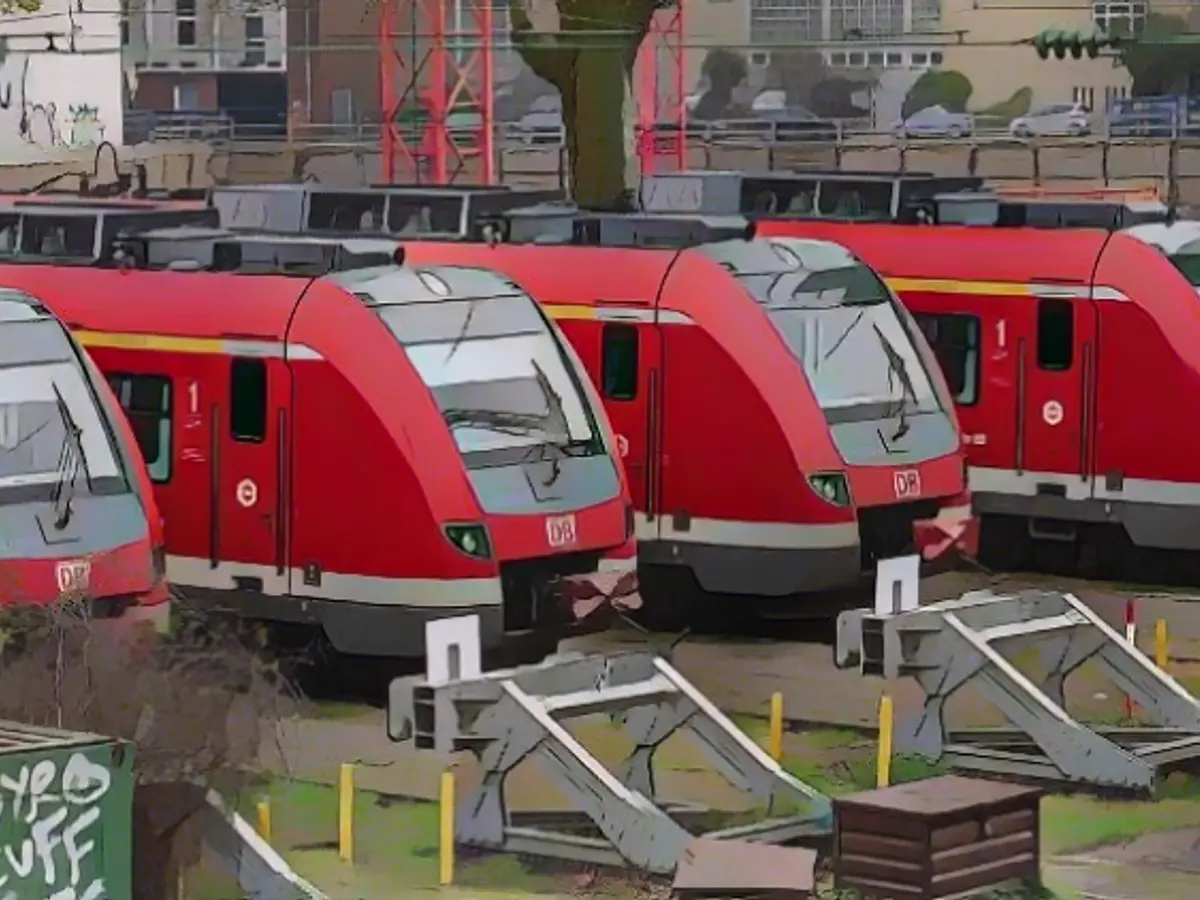Deutsche Bahn and the train drivers' union GDL are in a heated battle over a new collective agreement, with talks scheduled for February 4 and 5 in Berlin. Despite both sides putting forth their ideas and agreeing to further discussions, the GDL has announced a strike as a precaution, with the exact timing still unclear.
Martin Seiler, the railroad personnel director, described the announcement as absurd, as Deutsche Bahn had just agreed to four more negotiation dates and had offered an 11% wage increase over 32 months, among other perks. However, the GDL is demanding a significant raise, reduction in working hours, and a one-off tax-free inflation bonus, which Deutsche Bahn considers unaffordable and an affront. The GDL is reportedly negotiating on behalf of around 10,000 employees.
The GDL's demand for a four-day work week with full wage compensation is being met with skepticism by Deutsche Bahn, as it would require hiring an additional 10,000 employees, which is not feasible in the current labor market. The union has stressed the need for a swift and constructive negotiation, but also warned that a strike remains a last-resort option if key demands are not met.
The ongoing dispute is causing tension, with the potential for strikes affecting regional, long-distance, and freight traffic across Germany. The upcoming federal election on February 23, 2025, adds another layer of uncertainty, as some parties have advocated for breaking up Deutsche Bahn into separate entities. The last major wage dispute between Deutsche Bahn and the GDL in 2023 resulted in nationwide strikes that disrupted services for days, suggesting that labor disputes in Germany’s railway sector can drag on longer than expected.
Source:
Enrichment Insights:
- The GDL is demanding at least a 7.6% increase for all employees, up from Deutsche Bahn's proposed 4% across the board.
- The peace obligation in the current collective agreement, which prohibits industrial action, is set to expire on March 31, 2025.
- If no agreement is reached by then, the risk of strikes increases significantly, potentially affecting services as early as April 2025.
- The EVG is advocating for an early wage deal before the federal election to secure a resolution before any major political shifts.
- If strikes do occur, they could potentially disrupt regional, long-distance, and freight traffic across Germany, similar to the nationwide strikes in 2023.








